
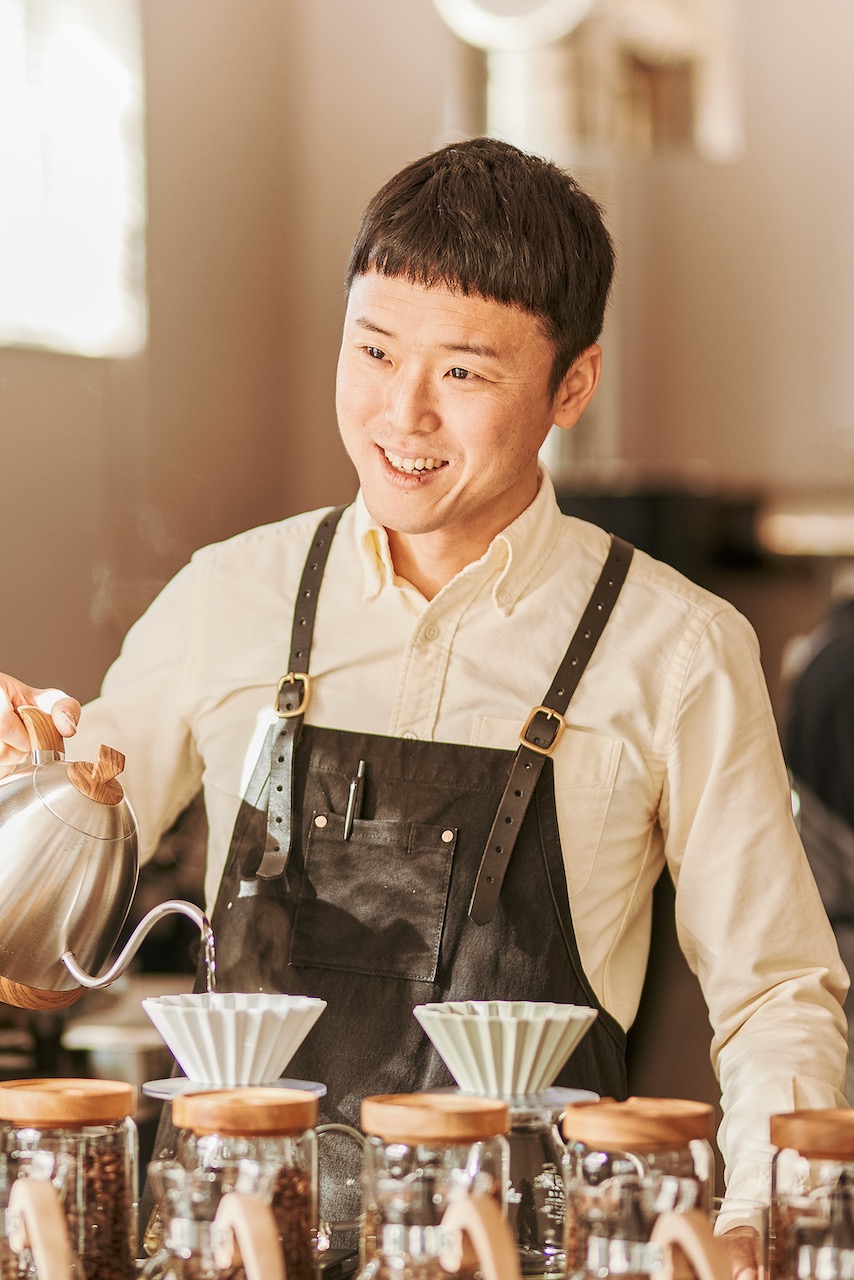
Popping of Flavors: Unique Coffee for Unique Life
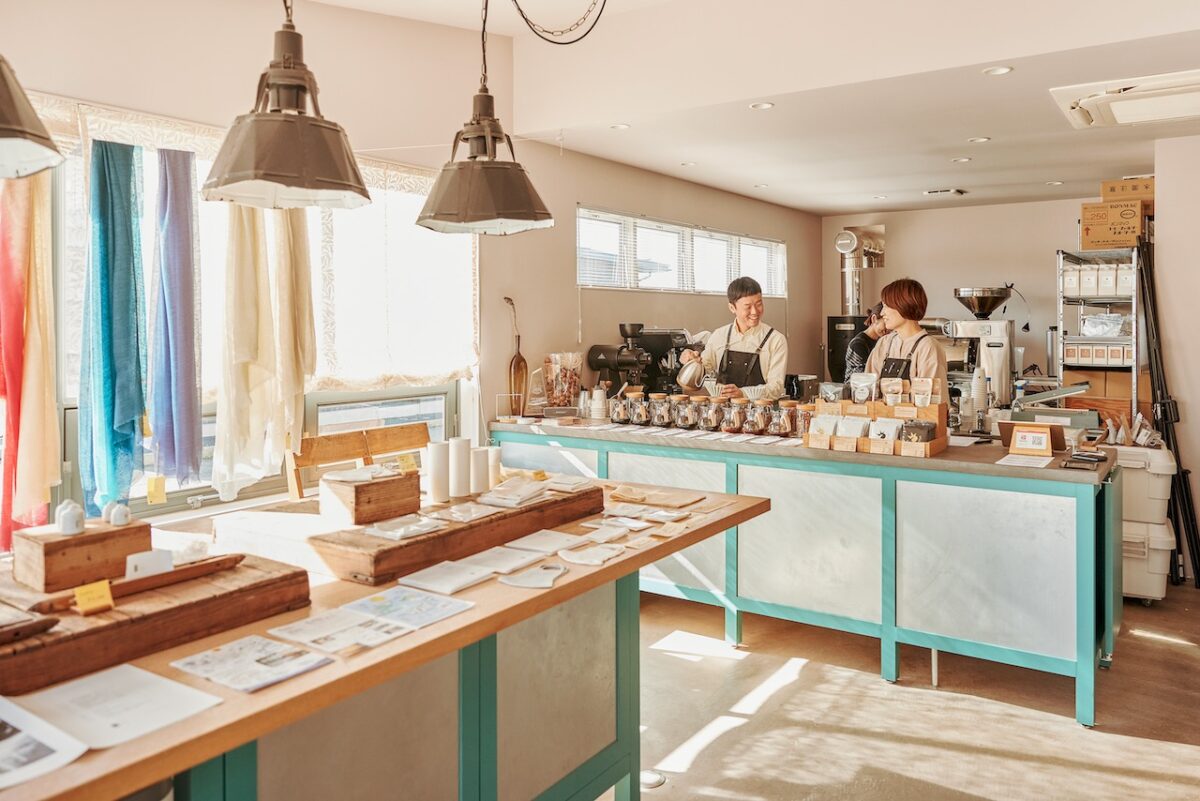
Hazeru coffee sits in a suburb of Toyama City, central Japan. Tucked away from a major road, the specialty coffee shop has drawn a steady stream of locals despite the seemingly inconvenient location since its opening in 2016. The store has the intimacy of a household dining room, with just a large six-top table sitting in front of the counter, which doubles as a tasting space and cashier’s desk.
In 2020, hazeru coffee opened its second outlet in SOGAWA BASE, a new commercial facility with an assortment of unique local establishments. Located in downtown Toyama City, SOGAWA BASE offered hazeru coffee a chance to bring its specialty coffee to more customers.
The name “hazeru” comes from the Japanese roasting term “hazeru,” or “to crack”. “Just as coffee beans crack open to bring out their aromas and flavors, an outpouring of emotions led me to open hazeru coffee,” says owner Toyohisa Kubota.
We’ve spoken to Kubota to find out how he came to open his own shop, his philosophy behind it and what he values most.
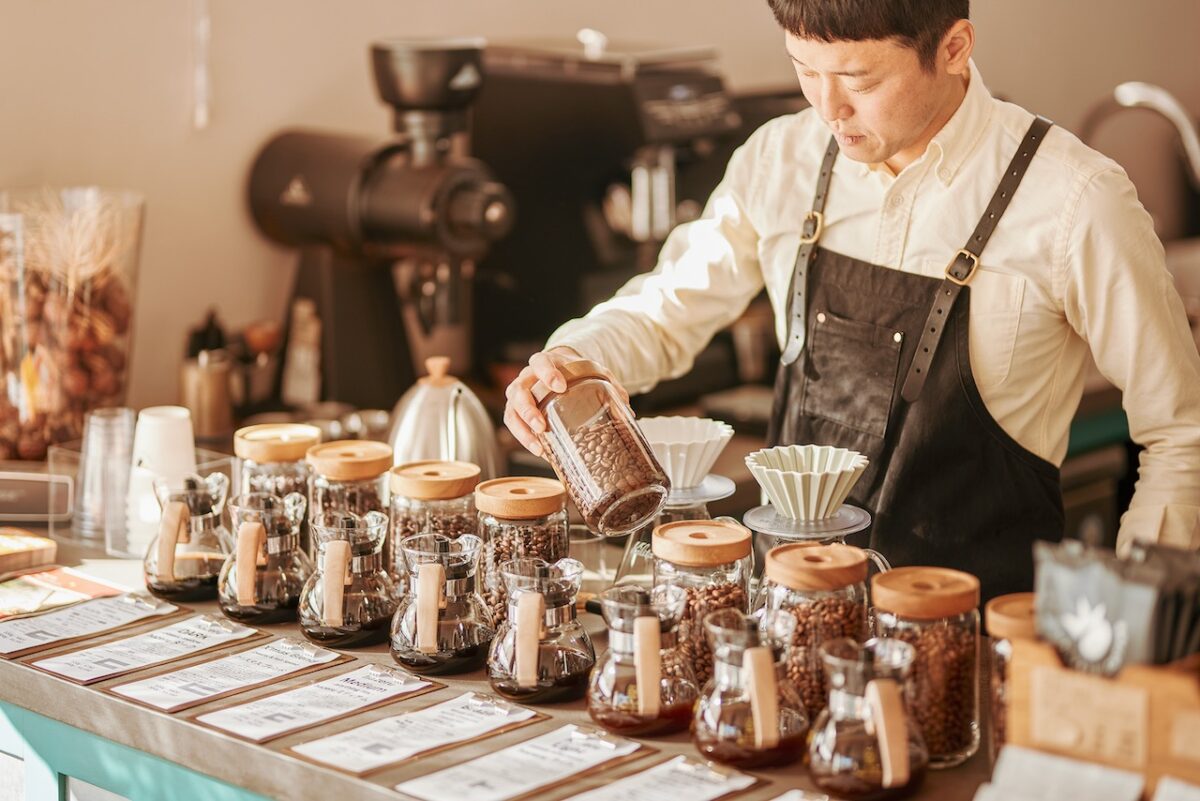
Yearning to bring new discoveries
Once you step inside hazeru coffee, a neatly arranged row of sample coffees catches your eye. Hazeru coffee offers seven to eight varieties of coffee beans on any given day for tasting and sale to meet a diverse range of customer needs.
“I make sure to offer a broad selection of tasting samples at all times,” says Kubota. “People often associate coffee with being bitter, heavy and dark. Many people say the acidity particularly puts them off.
But upon trying samples, they often say ‘This is actually good.’ As the saying goes, a picture is worth a thousand words. So I would like people to give specialty coffee a try and enjoy its different qualities.”

When Kubota opened his first shop, Japan was experiencing the so-called third wave of coffee just as was the rest of the world. The global movement spawned new types of coffee and brewing equipment. Kubota says he already had a strong desire back then to make his shop a place where customers could meet fresh discoveries and find new appeals.
“Unlike in big cities, when I was in Toyama, I rarely came across coffees that made me crave more. And there was no place in the city where I could actually see and touch brewing tools before buying them,” Kubota recalls. “That experience led me to believe in the value of actively promoting new things. That way, I hope my place will change people’s prejudices against coffee and introduce them to its appeals they didn’t realize before.”
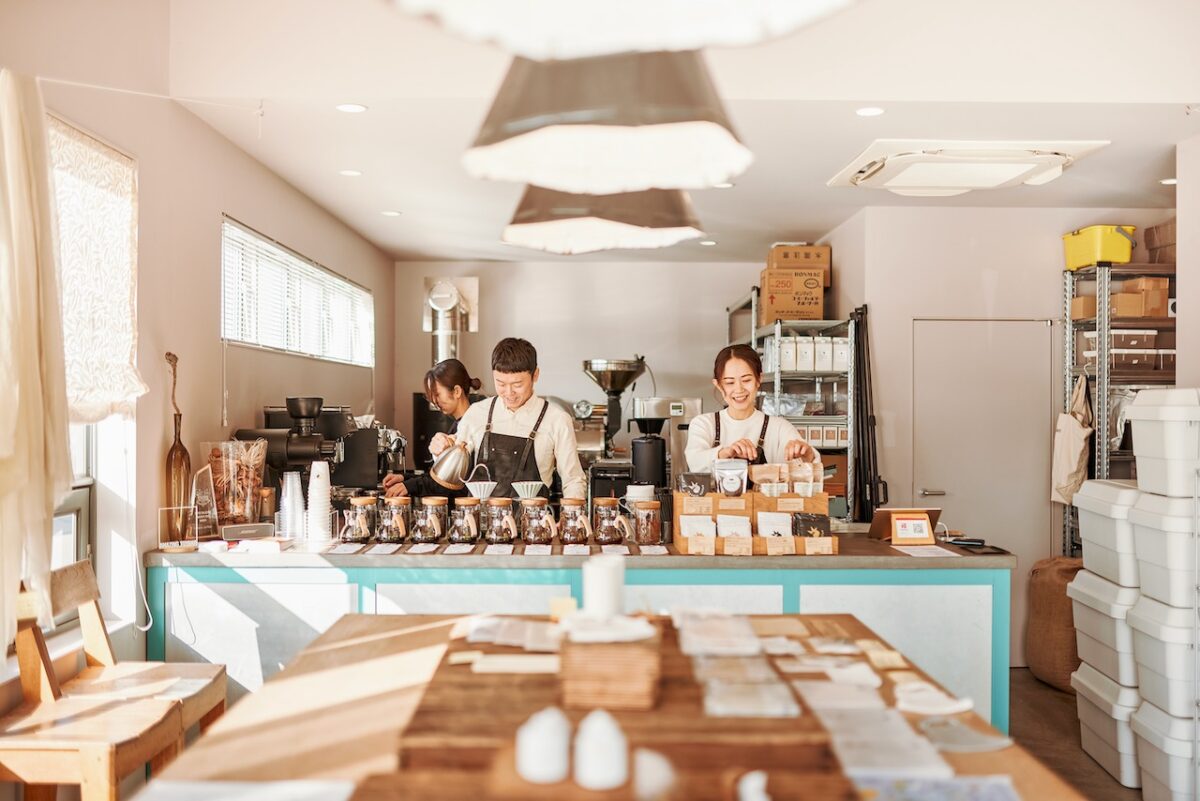
His philosophy for the store spills over into its decor.
“I didn’t want to design my shop to be a cafe, but instead aimed to model it after a roastery or coffee stand. When people go to cafes, they tend to spend their time as they want, which means cafes can attract customers who aren’t necessarily looking for a good cup of coffee. That’s why I decided to put only a large table in my shop and nothing else.”
In fact, sitting around this single large table, customers often strike up conversations with each other. And Kubota has joined in on more than a few such occasions. Here, delicious coffee fosters spontaneous communication.

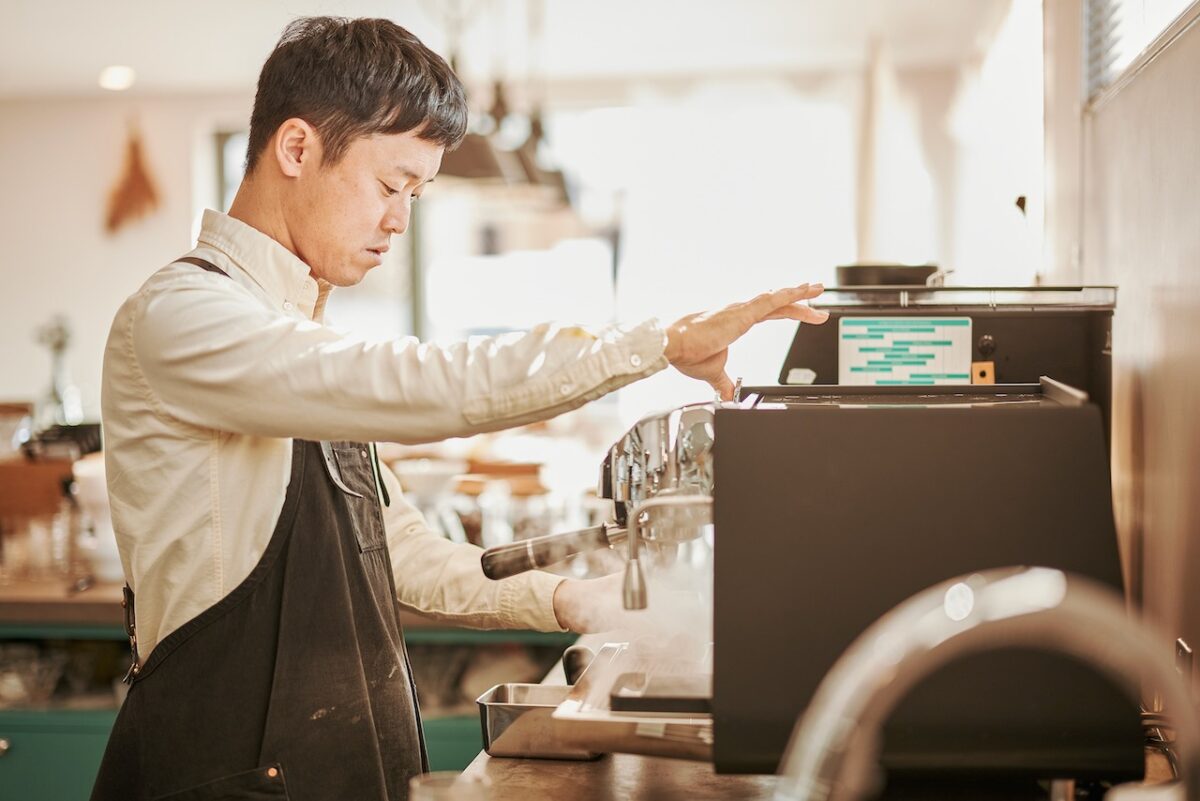
From bank to coffee world
Today, Kubota is fully immersed in the world of coffee. But he started his career in a field far removed from the food and beverage business, much less the coffee industry. Having spent his high school years in Kanazawa, Kubota went on to earn a bachelor’s degree in business administration in Yokohama. Upon graduation, he started a job at a bank. How did his journey into the coffee industry begin?
“I was interested in business management. I imagined it would be fun to get to talk with many business executives at a bank. Simple as that,” says Kubota. “But I didn’t realize that banking was such a rigid sector with numerous formalities. And it didn’t take long before I started to feel uncomfortable.
On top of all that, when it comes to loan transactions, the lender has a position of strength over the borrower. So I began to itch to find a job where I could build more frank, equal relationships.”
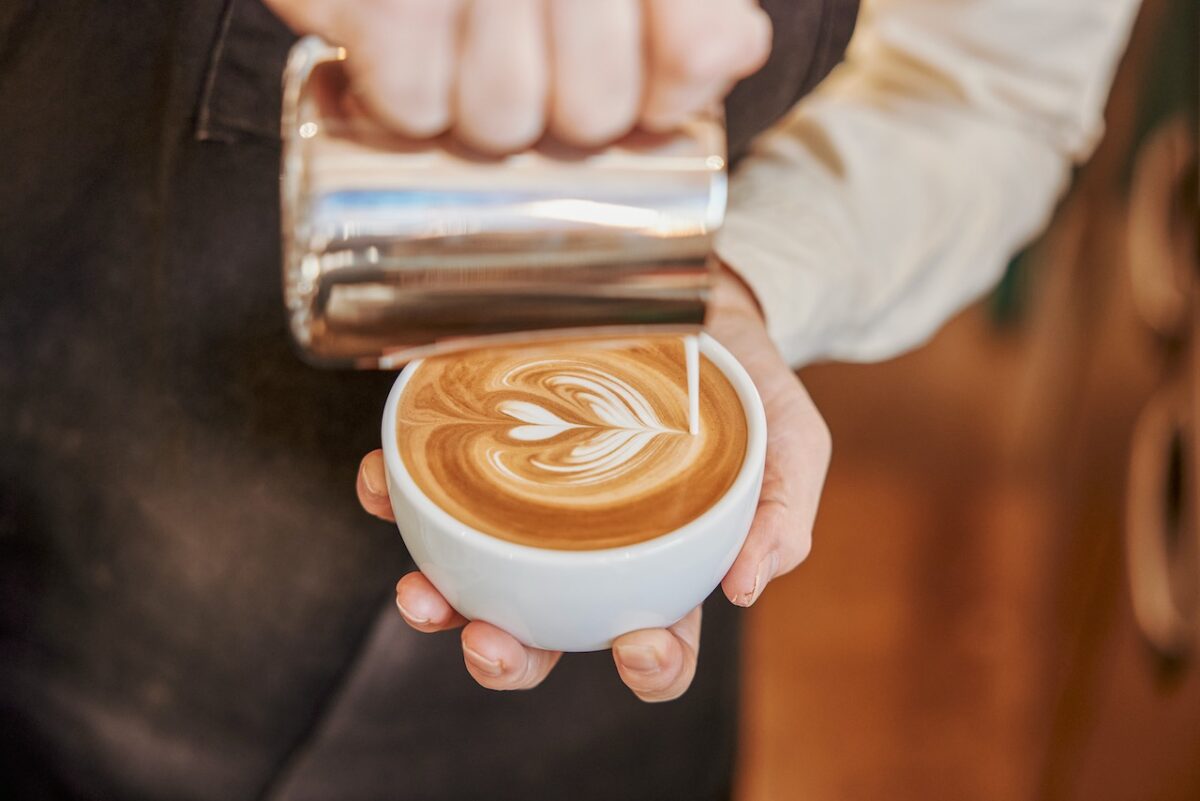
One day, he stopped by a coffee chain after work, as was his usual habit on his way home. Kubota recounts the day, which ultimately prompted him to quit the bank and set off on a new path.
“As I was drinking coffee, I remembered how I was immensely impressed when I had a caffe latte for the first time at a Starbucks in Yokohama when I was a university student. I could taste the sweetness of milk but the coffee itself was also remarkably profound. It was so delicious that the memory was still vivid in my mind.
So I thought I wanted to work for Starbucks and open its branches in my hometown Kanazawa. I assumed I could feel more satisfaction with my own work in the food and beverage business because it deals with tangible things. I also found it appealing to be able to do my job while forging relationships with customers.”
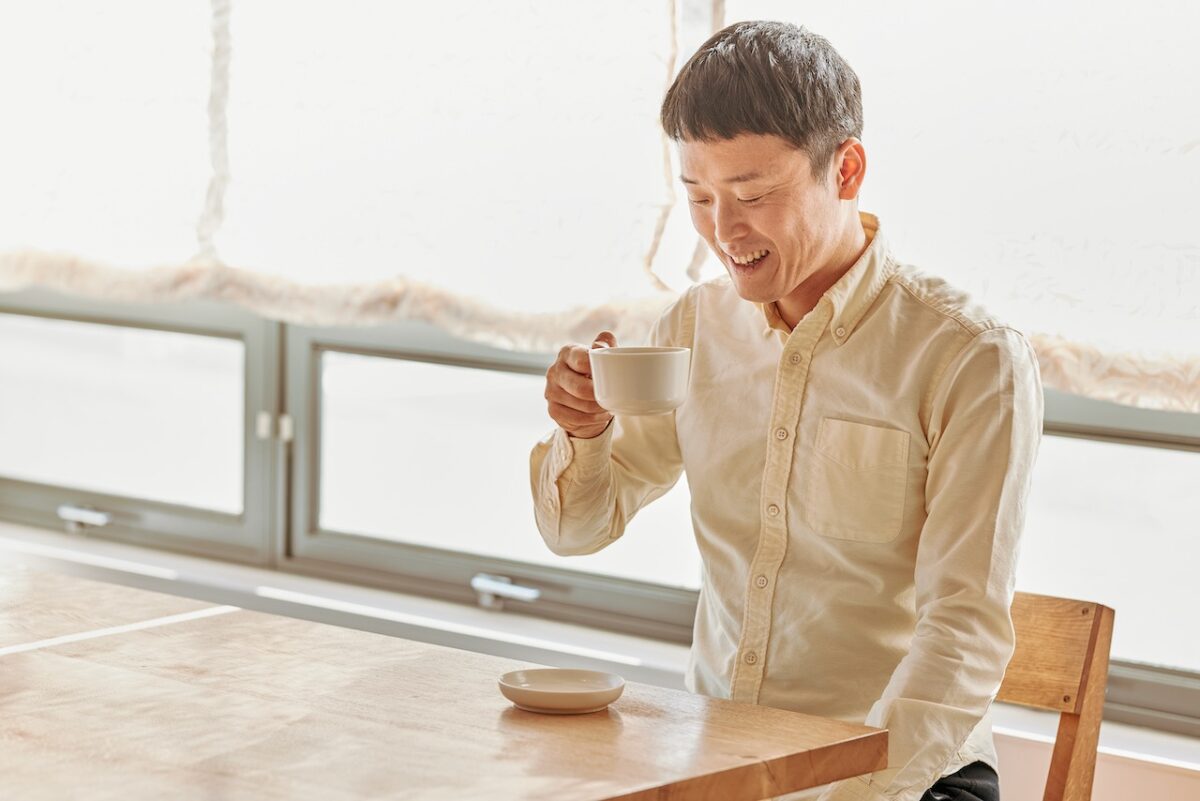
Kubota wasted no time calling Starbucks. The company told him that it was just planning to open its first shop in the Hokuriku region, which includes his native Ishikawa Prefecture. Kubota sent in his application right away. Having secured a position at the coffee chain, he left the bank after seven months on the job, with his eyes set on a new journey into the coffee world.
“I joined Starbucks, determined to claw my way up to management, rather than just keeping tabs on store sales,” says Kubota. “I had always been interested in running a business since I was young. When I was in elementary school, I even wrote in my graduation essay that my dream was to become a company president. Then again, I didn’t have the grit needed to start a business of my own. There was no way I could go independent. That’s how I always thought.”

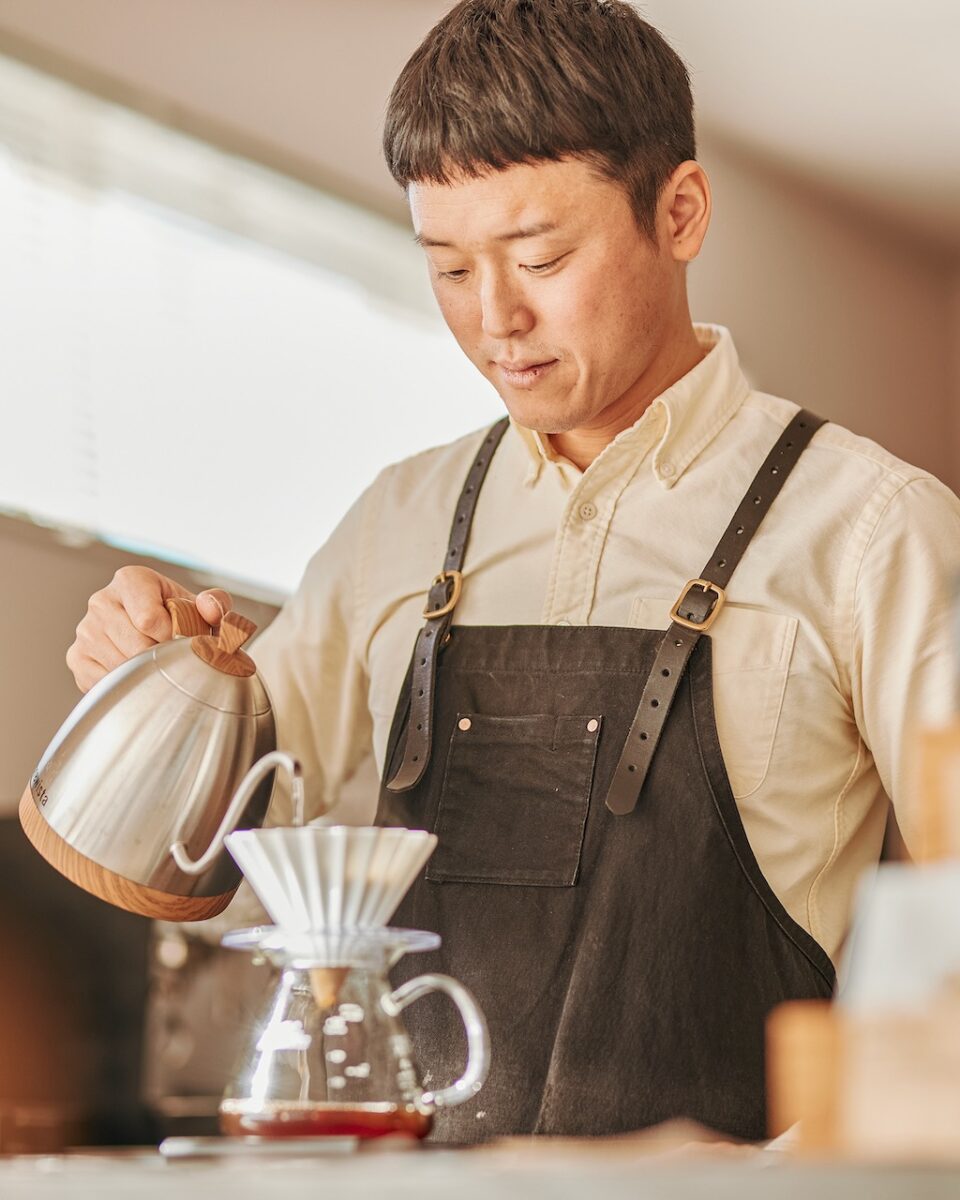
Earthquake, becoming father and an encounter with one book
Kubota had worked as store manager at Starbucks cafes in Ishikawa and Toyama. About 10 years into his time with the company, he was transferred to another shop in Kyoto. It was around that time that he started to feel that change was brewing within him.
“There were a few turning points. One of them was the earthquake and tsunami in 2011. The disaster happened the month after I started at the Kyoto store. It gave me pause to reflect on life, and what it means to live.
Another turning point was my first child. She was born the following year. Up until then, I had enjoyed being on the move, relocating to various cities across the country. But after becoming a father, staying in one place started to seem like a good idea. Of course, it’s fun to get new inspirations in new surroundings. But there are certain things you can accumulate only when you live in a place long enough, such as information and relationships. It was around this time that I began to realize the beauty of having a permanent home.”
The burgeoning specialty coffee scene in Kyoto also had a major impact on Kubota.
“It’s embarrassing to admit, but I didn’t know until then what specialty coffee was. I started to drink specialty coffee, and realized specialty coffee was obviously more delicious. That’s when it occurred to me that it was time to move on to the next stage.”

Still, starting his own shop was not an option at that point. The thing that eventually drove Kubota to go independent was an encounter with a book titled “Inaka no Panya ga Mitsuketa ‘Kusaru Keizai’” (‘Rotting Economy’ Witnessed by Rural Baker), written by Itaru Watanabe.
“The author doesn’t hesitate to move to a new place or change the way he operates his bakery if it means more delicious bread or better circumstances for his family,” Kubota says. “For a company worker like myself, the author’s take on life was eye-opening. If I want to live my life as I wish, there is no better way than creating work myself. This book brought that idea home to me.”
Just as coffee beans pop open under heat, something began to crackle inside him.
“That book had such a strong influence on me that I initially planned to open a bakery. But after around six months, I thought to myself, ‘Why am I trying to become a baker after spending 10 years in the coffee industry?’ Then I made up my mind to open my own coffee shop.”

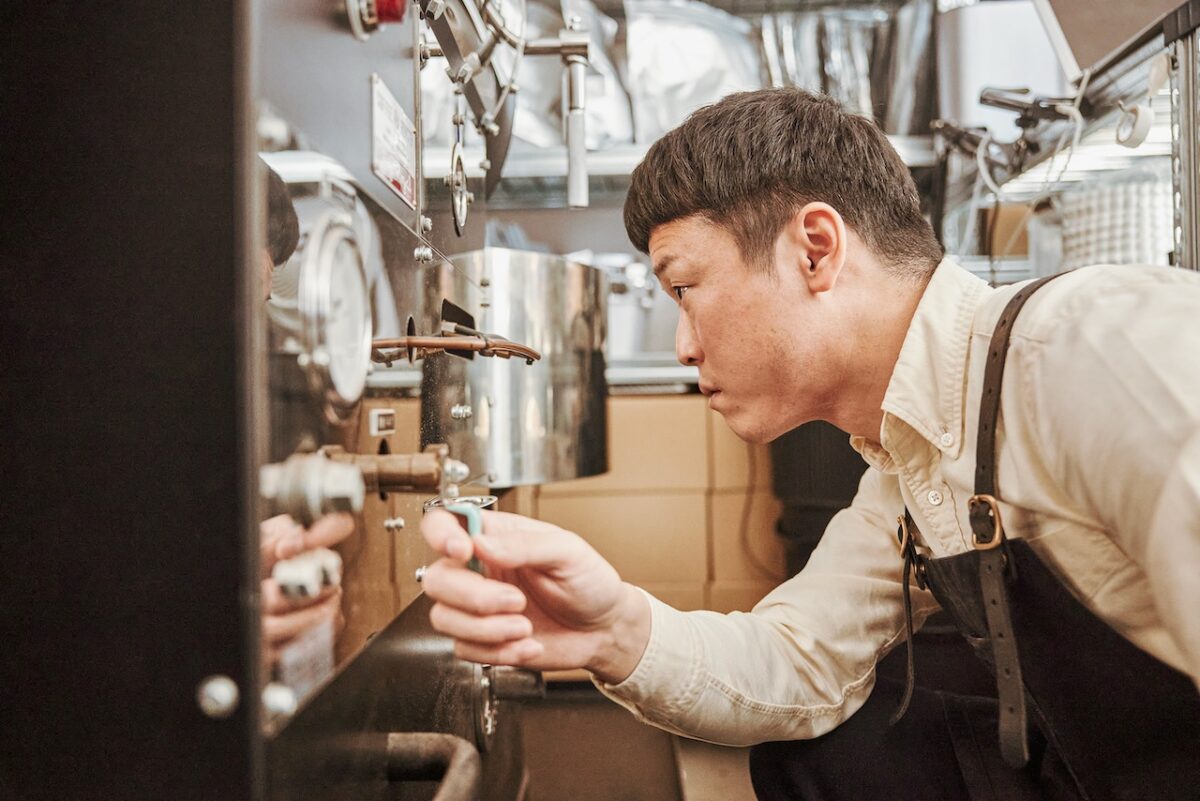
Destination store
Roasting skills proved to be the first stumbling block to opening his own shop.
From the get-go, Kubota planned to roast coffee himself because he knew the quality of green coffee would translate into the quality of the cup. However, for all the years he spent in the coffee world, he was new to roasting.
“I initially thought I couldn’t roast coffee myself. But after reading some books, roasting seemed to be all about heat control. So without much consideration, I thought I could do it. But it turned out to be much harder than that. So I attended seminars organized by a long-running coffee shop and also asked a friend of mine to let me study at his coffee shop in my hometown.”
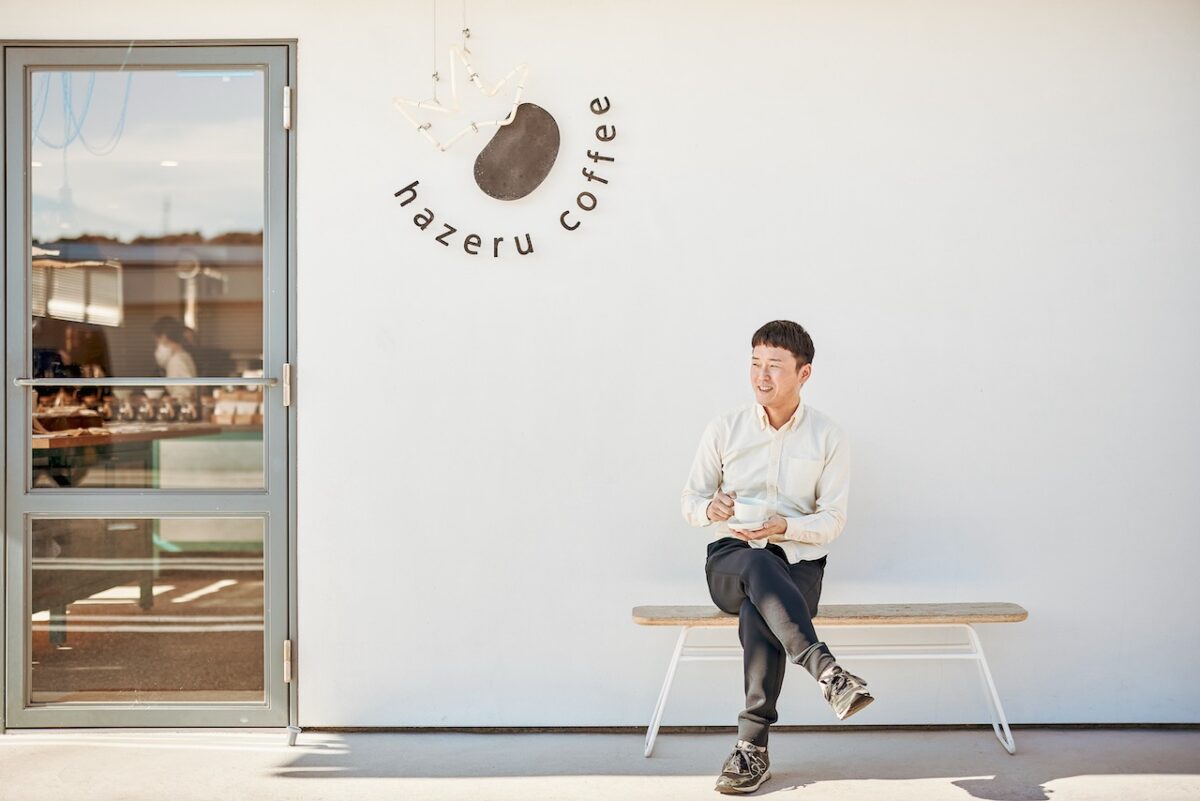
Overcoming hurdles one by one, Kubota decided to go independent within three years. He picked Toyama, away from his hometown, as a place for his first shop because he had built connections with locals there after living in the city for nine years. He spent a long time carefully sketching out the concept of his store while looking for a location.
“Specialty coffee is expensive for a cup of coffee. So I thought an ideal place would be where there are many people who are highly conscious about their food and willing to pay a higher price for delicious things,” Kubota says. “Clearly, you can find many such people downtown. But opening a store in a busy area comes with the risk of a mismatch. So my ideal was to make my shop a destination store, a place where people take the trouble of going, regardless of its location.”
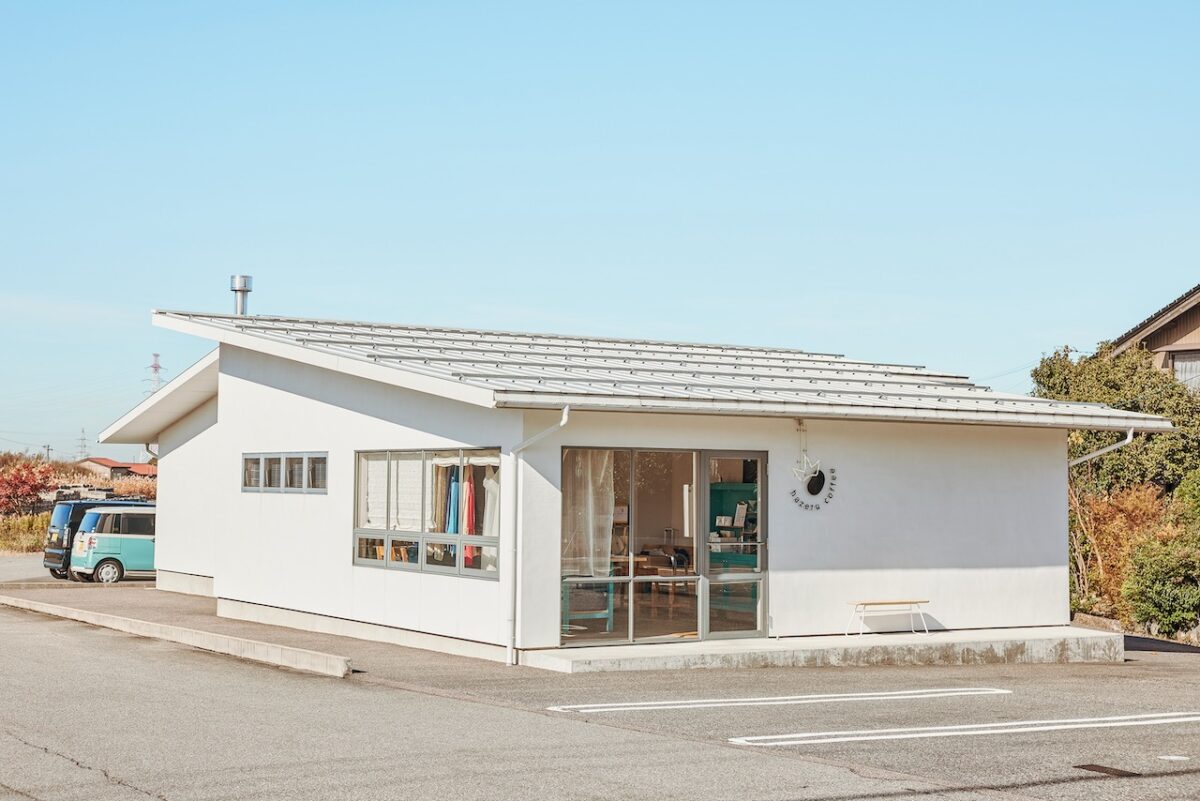
The Furusawa district, on the outskirts of Toyama City, caught his eye. In Furusawa, there was a butcher shop selling brand-name beef. And Kubota’s favorite bakery had just relocated next to the meat store. His gut told him Furusawa would be a good place. After speaking to the butcher, he decided to buy a vacant plot on the spot.
“Furusawa was exactly the kind of place I dreamed of. It attracts foodies from outside the area. And their patronage brings in other customers who trust their reviews.”

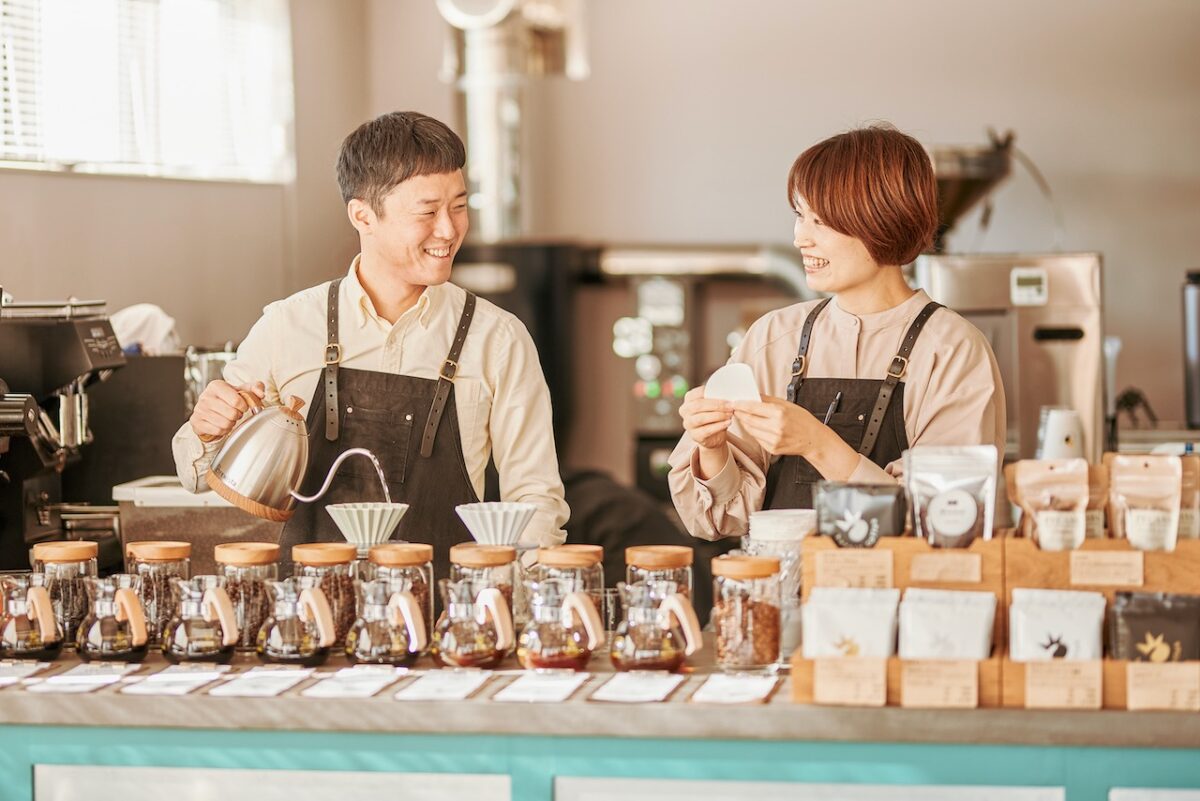
Finding joy in widening, deepening relationships
Kubota finally opened his first shop. He looks back to a time when going independent seemed impossible.
“I was so afraid of taking risks that I convinced myself I couldn’t start my own business. But the risks weren’t so big when I broke them down. In retrospect, I was too blinded by my fear to see the risk of carrying on with my job, and instead exaggerated the risk of trying something new. Now, I’m happy that I’ve gone independent. I would even recommend others to do the same.
I feel fortunate to be able to design my own life. In my previous job, I didn’t get to spend much time with my family, even though we lived together. But now, my first shop doubles as our home. So I can eat with my children, bathe them and then finish up work. I also changed my shop’s opening hours after the Covid-19 pandemic hit. I have the freedom to choose how I operate my stores as well as how I live my life, with a sense of responsibility.”
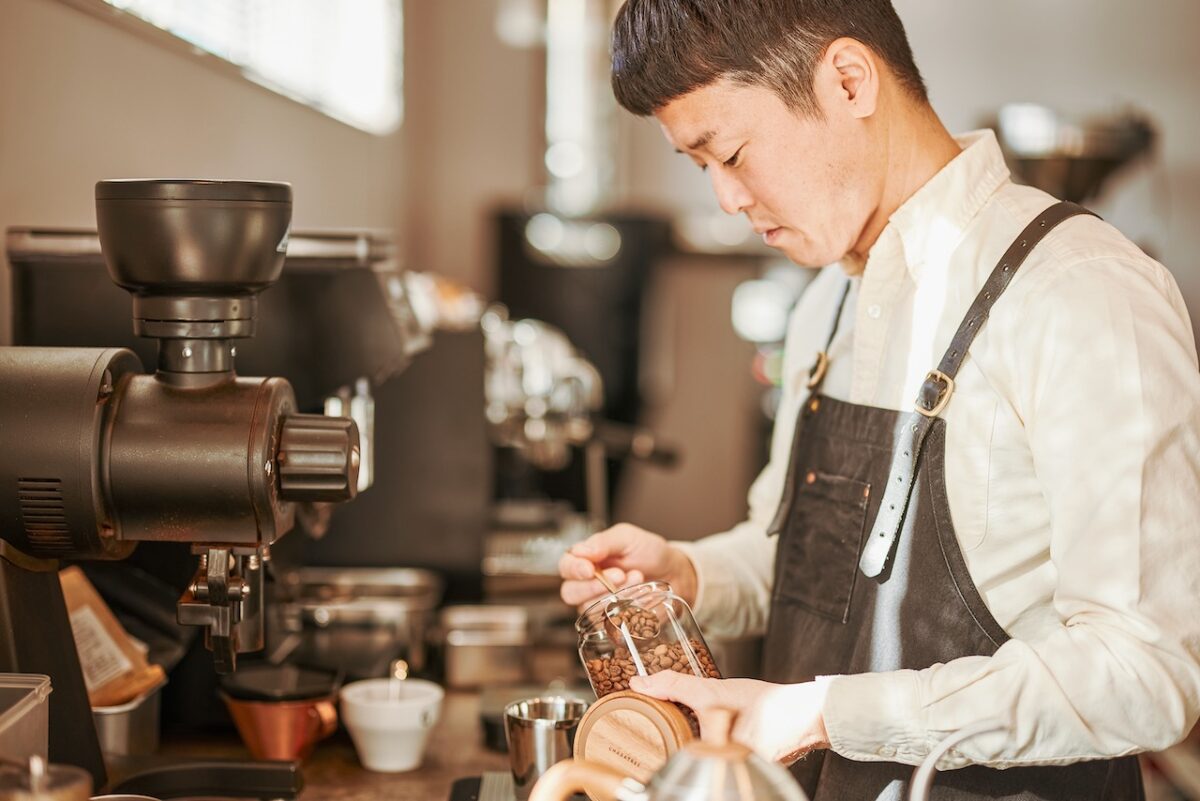
With this newfound freedom, where does Kubota hope to take his shops?
“I want to stay close enough to customers so I can personally meet their needs. When I go out and dine at restaurants, my favorite places are ones where owners figure out their customers’ tastes and cook the next dish accordingly.
I specialize in specialty coffee, and customers come here because they love coffee. So I make a point of asking them what kind of coffee they like, and adjust roasting or pick a variety that suits their tastes. Even when I buy green coffee, I think of customers who might like it.”

Kubota says it is difficult to find a balance between serving customers what they want and serving something surprising that opens their eyes to new discoveries. The selection on offer at hazeru coffee is a glimpse into his philosophy. Just as coffee beans crack twice under heat, Kubota has enjoyed change since opening his first shop.
“I run a business that’s deeply rooted in its neighborhood, and my connections with local business owners and customers continue to expand and deepen. I’m in the same place, with the same people, but my relationships with them keep changing.”
“People in Toyama often say there is not much to see in Toyama. But if you focus on the residents here, each of them has their own ideas and stories to tell. There are interesting people and interesting stores. It’s just that they are not widely known yet. I want to cast those people and places in a new light and do my part to energize Toyama. I am working on a collaboration project now. I believe there should be a new form of partnership, even with people from outside the coffee world.
Originally written by Mieko Karube
Edited by Tatsuya Nakamichi
Photos by Kenichi Aikawa
MY FAVORITE COFFEE
My favorite coffee is one that I drink with my wife on a day off, with our favorite sweets. When I was a student and lived with my parents, I had a habit of saying “I want to live by myself.” But looking back, my happiest moments have always been times with my family.
My children can’t drink coffee yet. But every now and then, they brew coffee in their own way, trying to imitate me. And their coffee isn’t so bad. I’m looking forward to the day I drink coffee with my children.

hazeru coffee
hazeru coffee
SOGAWA BASE
- [Open]
- 10:00-19:00